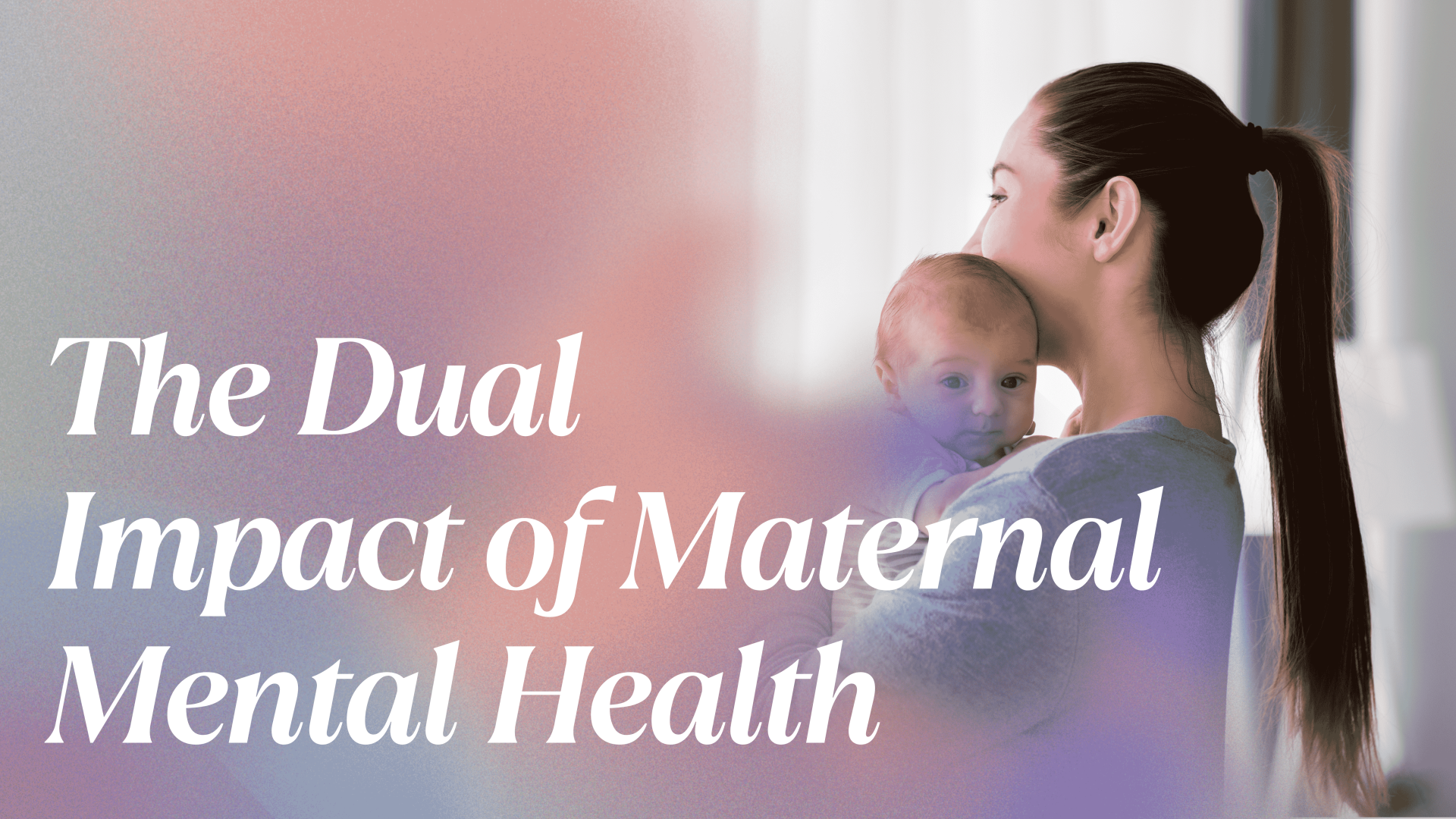Introduction
Maternal mental health has a dual impact both on the child and the mother. As maternal mortality rates decreased globally, the focus has now shifted more on addressing maternal morbidity, which refers to health issues that may arise during or after childbirth. However, the impact of maternal mental health on maternal morbidity has not been fully understood.
Research has skyrocketed in terms of the psychological well-being of women during the childbirth process. This is because mental health issues in mothers can not only affect the mother’s health but also have implications for the well-being of her child.
There are various psychiatric disorders that manifest themselves during pregnancy, depression being on the top. Moreover, there is often a societal glorification of motherhood, leading pregnant women or mothers to feel guilty when they experience negative emotions.
Factors affecting maternal mental health
Various factors increase the risk of experiencing mental health challenges during pregnancy. These include a personal or family history of psychiatric illness or substance abuse, a history of sexual, physical, or emotional abuse, exposure to intimate partner violence or forceful compulsion, current social difficulties, and significant life events occurring simultaneously.
Psychological issues during pregnancy have been linked to insufficient prenatal care, low birth weight, and premature delivery. Similarly, in the postpartum period, they are associated with reduced emotional attachment, neglect, and hostility towards the newborn.
It was found that among women experiencing depressed mood during pregnancy, 13% met the diagnostic criteria for a major depressive episode. Similarly, in a study involving 290 women, both during pregnancy and after childbirth, approximately 12% of the participants met the criteria for various psychiatric disorders, including major depressive disorder, manic episode, generalised anxiety disorder, social phobia, specific phobia, and obsessive-compulsive disorder.
Importance of perinatal period and antenatal period
The perinatal period, encompassing both the antenatal phase, which refers to the period before childbirth, referring to the time from conception until the onset of labor and postnatal phases, also known as the postpartum period, begins after childbirth and extends for several weeks or months, depending on various factors such as physical recovery and adjustment to parenthood holds immense importance for both mothers and their children.
While the influence of maternal mental well-being on child development begins at conception, research on antenatal mental health has surged only recently. Previous studies predominantly concentrated on prevalent mental disorders like depression and anxiety. However, emerging evidence indicates that antenatal mental health issues may serve as early indicators for future mental health challenges in a woman’s life.
Prevalence and assessment of antenatal psychological problems
Psychological issues during pregnancy, known as antenatal psychological problems, are common globally and a significant number of pregnant women experience these problems. Studies suggest that 18% of women report depressed mood during pregnancy, 13% met with diagnostic criteria for a prolonged depressive episode.
Mental health issues during pregnancy can vary throughout the different trimesters. One study reported similar prevalence rates of antenatal anxiety and depression across all three trimesters, others have found differences in prevalence rates depending on the stage of pregnancy.
Women who experienced two or more stressful life events were 3.7 times more likely to report depressive symptoms during pregnancy. A qualitative study conducted revealed that factors such as adjustment to motherhood, feelings of loss due to restricted social activities, past experiences of fetal loss, distress during previous pregnancies, and current concerns about pregnancy were identified as primary risk factors for distress during pregnancy.
Similarly, another qualitative study conducted highlighted the lack of partner support as the most significant contributor to distress during pregnancy apart from being single, belonging to a polygamous marriage, having a history of stillbirth, and perceiving a lack of social support were associated with depression during pregnancy.
Additionally, the quality of marital relationships has been consistently shown to influence antenatal psychological distress across different cultures.
How does maternal mental health affect child behavior
1. Maternal Fetal Attachment
The infant-mother bonding also known as the Maternal-Fetal-Attachment (MFA) begins during the early stages of pregnancy. The extent to which expecting mothers perceive social support appears to play a more substantial role in predicting MFA than other factors such as anxiety, self-esteem, and depression. This suggests that the subjective belief in having assistance and resources from others has a stronger influence on the emotional bond between a mother and her unborn baby than individual psychological states like anxiety levels, self-esteem, or feelings of depression.
In essence, maternal-fetal attachment seems to be particularly influenced by the perceived level of support from one’s social network, underscoring the significance of social support in shaping the emotional connection during pregnancy.
2. Infant Temperature
Psychological stress among parents during pregnancy is not only intensified as they transitioned into parenthood but also is correlated with challenging child temperament at 12 months postpartum. Maternal depression at 6–8 months postpartum predicts a child’s difficult temperament, including mood and behavior at 21–24 months old and treating maternal distress heightenes the chances of the child having a calm temperament.
3. Child Cognitive-Emotional Behavior Problems
Psychological distress and mental illnesses, such as depression and anxiety, not only affect birth outcomes and physical growth but also shape a child’s emotional, cognitive, and behavioral development.
The level of maternal sensitivity, or the mother’s ability to appropriately and accurately respond to her infant’s cues and needs, has a greater impact on infant responsiveness than either the mother’s psychiatric diagnosis during pregnancy or her psychiatric status after giving birth.
The way mothers interact and engage with their infants, being responsiveness to their needs, plays a more significant role in shaping how infants respond and react than the presence of psychiatric diagnoses or mental health status before or after childbirth.
Conclusion
In conclusion, the literature over the past five years underscores the high prevalence of antenatal and postnatal psychological distress worldwide. This distress often persists from pregnancy into the postnatal period and is associated with adverse birth outcomes as well as emotional, cognitive, and behavioral issues in children.
Research has highlighted the lasting impact of maternal mental health on child and adolescent behavior, emphasizing the need for effective interventions to support maternal well-being and improve child outcomes. Some studies use cross-sectional designs to understand how common and related factors are to maternal distress, while longitudinal studies and prospective birth cohorts provide valuable insights into how mothers and children interact over time.
Moving forward, there is a need for more longitudinal research to explore the effects of psychosocial interventions on maternal and child mental health outcomes. Additionally, addressing the gap in research on paternal distress and its impact on child behavior is essential for a comprehensive understanding of family dynamics and child development.
Overall it is one’s prime responsibility to underscore the critical importance of supporting maternal mental health for the well-being of both mothers and children to foster their improved well-being.
Resources : https://www.ncbi.nlm.nih.gov/pmc/articles/PMC3267349/





 No products in the cart.
No products in the cart.